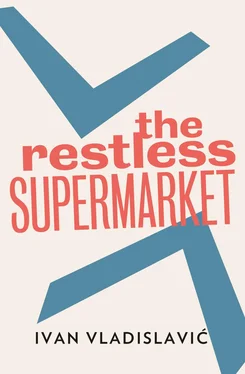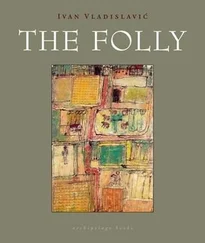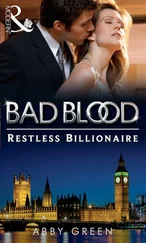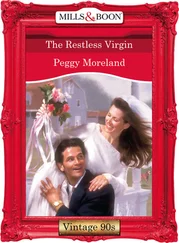Not all of Mevrouw Bonsma’s musical accompaniments were as dramatic as this. Often they were simply little chains of association, reminiscent, some of them, of an untaxing session of lexical fartlek. But even these connections were usually invisible to me, inaudible, below my threshold of hearing (not that there’s anything wrong with my ears). Merle, who was more educated than myself musically, made it all as clear as day, by an effortless and unassuming laying on of labels and drawing of distinctions.
I saw that I had misjudged Mevrouw Bonsma. She had a system, albeit one founded as much on intuition as on ratiocination; and there is nothing I admire more than a system. Enclosed in her hardy flesh was a sensitive, highly developed creature — and not struggling to get out, far from it, quite content to be there. Was refinement not precisely an appreciation of those qualities that were hard to see, that always lay hidden beneath the surface, where a superficial eye would fail to appreciate them? As usual the poor Americans had it all wrong; the real thing could not be grasped in a fist or quaffed in a few greedy gulps. It had to be found, more often than not, after vigorous effort. Under the benign influence of this understanding — which, I hardly need add, had an immediate appeal for a proofreader — the threat Mevrouw Bonsma had once posed was dispelled, and soon seemed inconceivable to me. Spilkin’s joke-telling subsided too, as suddenly as it had developed — an even more merciful reversal. So I finally accepted her into our company. When her shift was over, she would join us to talk or play games, and I came to enjoy her companionship almost as much as Spilkin’s and Merle’s. She seemed smaller, now that her contents were properly secured.
Merle, by contrast, was at home in our midst from the outset. Suddenly there were four of us. I have never been the most sociable of men, but I found her company unusually convivial. She was an organizer and perhaps we needed organizing, having nearly lost our sense of ourselves. She liked board games and cards, which neither Spilkin nor I had a taste for, but we played along because she was a good talker and had a quick mind. She tried to teach us bridge, and we bumbled through a few games of that. More often it was General Knowledge, always with a musical category for the benefit of Mevrouw Bonsma. Sometimes Merle insisted on giving her clues, humpty-dumpty-dum , so that she would not lag too far behind. Merle usually won. It was all in good spirit.
A month or two after the advent of Merle, influenza kept me abed for a few days. When I returned to the Café — to a salubrious air from ‘The Happy Huntsman’ — she said she was delighted to see me. ‘I wanted to come in search, because I thought you might be ill. But Myron wouldn’t tell me where you stayed. It wasn’t the same without you. We’ve become quite a little circle, haven’t we?’
‘Not that,’ Spilkin admonished her.
She was taken aback. ‘I’d call us a circle. Wouldn’t you, Aubrey?’
I wasn’t sure. Probably. But before I could make up my mind, Spilkin said: ‘It’s a question of arithmetic — or is it geometry? Two people cannot be a circle. Two is a couple, a pair, a brace. Three is a crowd only in idiom. Primarily three is a triangle. Four will always be a square — or two pairs.’ Was that a meaningful glance at Mevrouw Bonsma, who was pulling up her chair beside his? ‘But five …? Now my head and my heart tell me that five might be a circle. Only a specialist would see a pentagon. It’s a good thing there are just the four of us. A circle is a dangerous thing.’
‘Viz, it has no end,’ said the Bonsma cheesily.
‘What do you say, Tearle?’
‘I’m with you, Spilkin.’
He was right. Ever since Merle’s arrival, we had settled down very comfortably. The four of us made for solid geometry. We were bricks, regular good fellows. Four-square was the term that came to my mind. Four squares too, I’d no objection to that: four of a kind, four equals, coevals, discriminating human beings, adults with compatible systems of thought and feeling, gathered around a table to amuse themselves, to pass the time pleasantly in conversation, in listening to music, in reading and other pursuits that broadened the mind. I might have wished that the table itself was square rather than round, to underpin our quadrilaterality, our state of balance, but how could I have guessed what lay ahead when Spilkin and I first made the choice?
Which isn’t to say that Merle did not have some peculiar ideas. Here was a woman who turned first to the last page of a book and read that to see whether she felt like tackling the whole thing. It was abnormal. When she suggested that the four of us go to the symphony to celebrate Mevrouw Bonsma’s fifty-eighth, I followed Spilkin’s lead and made short shrift of the idea. There was no point in throwing the rules and regulations overboard.
So the two of them went on their own.
*
Proofreading, properly done, is an art. It demands great reserves of skill, experience and application. It is also a responsibility; and while not all responsibilities are onerous, never mind what the newspapers say, this one deserves the adjective. Only when an eye has scrutinized every word in a text may it truly be said to have been read. And the fact is that more often than not, the only eye that looks at every word and at the spaces in between them, at the folios, the running heads, every last entry in an index, every full stop and comma, every hyphen and parenthesis — the only eye that does all these things belongs neither to the author, nor the editor, nor even the most assiduous reader, but to the proofreader. The proofreader is a trailblazer and a minesweeper. The readers who follow him may take any path with confidence, may go down any passage and cross any border, and never lose their bearings.
Getting things right is not just a matter of form (although that is important enough in itself), but of necessity. Dotting one i might be regarded as a mere punctilio, and failing to do so dismissed as a trifle. But all the dots left off all the i’s accumulate, they build up, they pack together like a cloud over a field of stubbly iotas. Soon there is a haze of them in every hollow, and the finer distinctions begin to evade us. In the end, the veil of uncertainty grows so thick that everything is obscured. As for the crosses left off the t’s, who do you suppose shall bear them?
It is one of the ironies of the art that the better it is practised, the fewer traces of it remain. The world remembers a handful of proofreading blunders — the Breeches Bible, the Printers’ Bible, the Unrighteous Bible of 1652 (see Ebenezer Cobham Brewer’s Dictionary of Phrase and Fable , at Bible) and a few ghost words in the dictionaries — gravy, abacot, Dord. But the world knows nothing of the successes.
Standards of proofreading have been declining steadily since the nineteen-sixties, when the permissive attitude to life first gained ground, and so have standards of morality, conduct in public life, personal hygiene and medical care, the standard of living, and so on. All these are symptoms of a more general malaise. Decline with a capital D. Perhaps it goes back to the War. While I myself was working in the field, I did not have time to devote to proselytizing; I had my own garden to tend. Once retired, I began to pursue that most genteel form of activism, the letter to the editor. Nevertheless, I had always felt that the solution to the problem of declining standards lay with the individual, in the revivification of outmoded notions of personal responsibility, and so I turned from tending my garden to ‘cleaning up my own backyard’, as the expression goes (in point of fact, I don’t have a backyard at all). I am no Dictionary-thumper and I try to be tactful, but my patience was often tested. Take the Haifa débâcle.
Читать дальше












